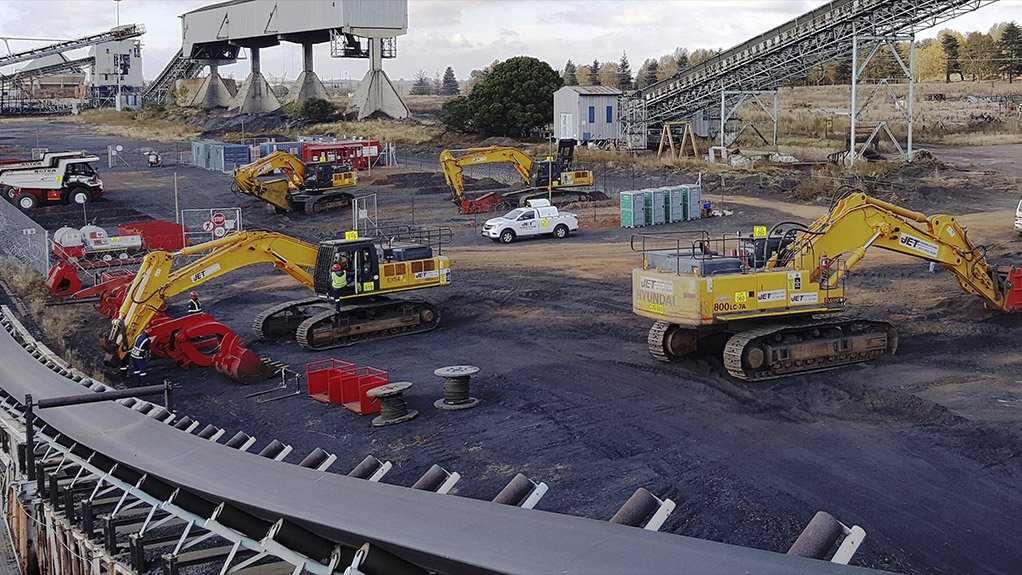
Jet Demolition has developed an in-house adaptor and quick-coupler system
Large-scale heavy industrial demolition often requires a vast range and variety of demolition tools to be used. These tools are carried by dedicated tool carriers or specialised demolition machines that are effectively essential conventional construction plant modified and adapted to accept them.
“In our line of work, the bulk of our attachments are unique to heavy industrial and large-scale demolition. This is a specific niche that does not necessarily extend to general contracting or even large-scale earthworks. As such, we are much more reliant on the skill, expertise, and experience of our operators,” explains Jet DemolitionContracts Manager Kate Bester.
The demolition specialist has developed an in-house adaptor and quick-coupler system for rapid tool change with minimal man-machine interface. “This system gives us the flexibility to change attachments rapidly and safely, as well as to have attachments that are interchangeable across machines, resulting in a wider variety of tools and greater flexibility on-site,” says Bester.
“We continually look at ways to improve not only our demolition methods, but also supporting safe work procedures,” adds Bester. This might mean developing a new type of adaptor, or just a new method of physically attaching the adaptor to equipment and tools to enable a safer, quicker, and more risk-averse approach.
Jet Demolition owns a range of tools developed and manufactured in-house to meet specific industry demands. These include mechanical pulverisers to downsize rubble quickly and efficiently, adaptors and extensions to afford additional reach, or piercing and pulling attachments for the flexibility to approach compromised structures from a position of safety.
“Fundamentally, our in-house tools and attachments have evolved from identifying a need for which a viable commercial solution does not exist,” explains Bester. Conversely, historic or heritage tools can also be improved to better serve their purpose. For example, base machines can be modified for a specific purpose or function to better serve a niche market, but not as often or regularly as those resulting from a specific application.
“We adapt to our own markets and requirements, and not necessarily to every trend that comes along,” highlights Bester. There are different schools of thought relating to specific tools, attachments, and methods. “It would be easy to hop onto the latest innovation, but in the demolition industry it is important that what you do and how you work is consistent, fail-safe, and predictable.”
Therefore, Jet Demolition relies on proven and tested innovations, often holding back to properly assess how these innovations fare in the industry. “We have a keen interest in plant and attachment development globally, but also proceed with caution when implementing and adopting new technology,” notes Bester.
The company has a fully staffed workshop with skilled plant mechanics and fitters and turners to maintain its fleet. “Although we have this in-house support, we also rely on plant operators to assist with regular maintenance and inspections, ensuring that small issues are addressed without delay to minimise the need for extensive repair. It is critical that our fleet is in tiptop condition and suited to the task at hand. We do have a range of tools at our disposal that influences the methods selected and which, in turn, drives safety and efficiency,” concludes Bester.